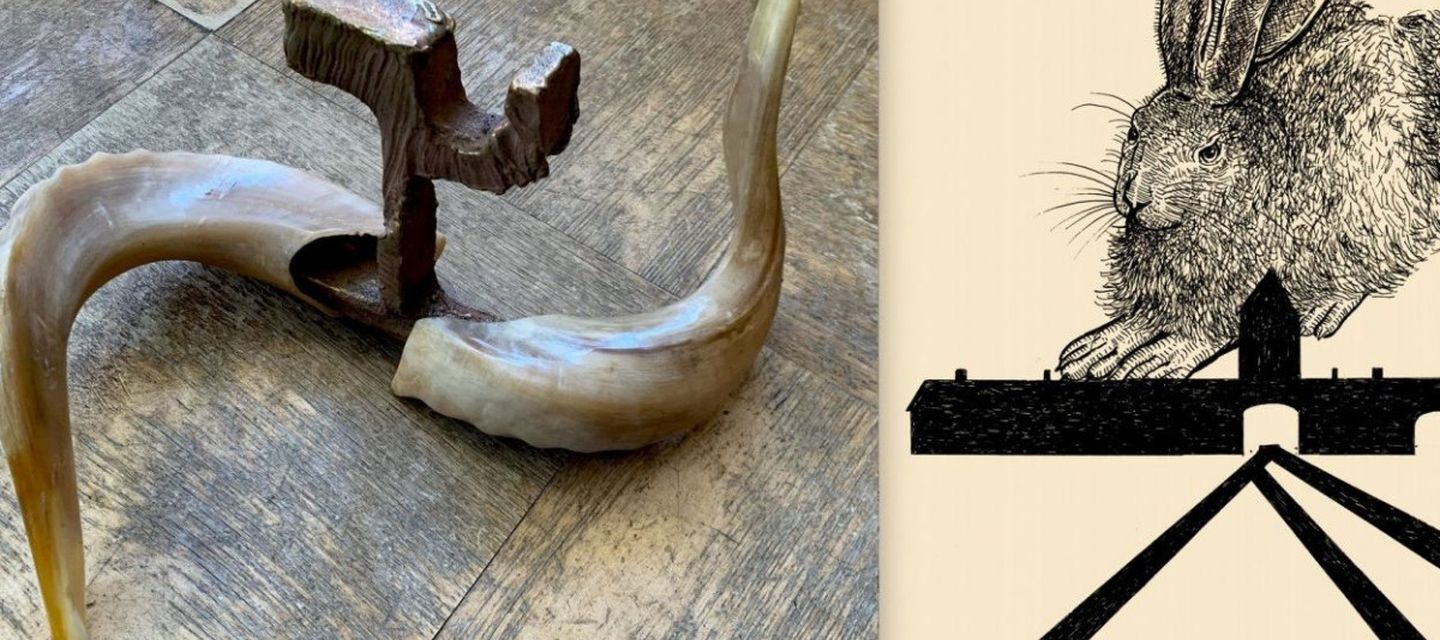
Footnotes to the work of Joseph Beuys
Art and society are closely connected – what political, social and cultural implications are present in Joseph Beuys’ body of work? Did Beuys deliberately use his visual language to make himself forget or even idealize his war past? We delve into these and other questions with Hans Peter Riegel, Arie Hartog, Joseph Sassoon Semah and Ton Nijhuis.
Artist Joseph Sassoon Semah has conducted extensive research into the work and ideas of Joseph Beuys. Based on his research and texts, he analyzes the deeper meaning of the (hidden) symbols that Joseph Beuys uses and responds to this in a number of new monumental sculptures, a series of old and new drawings, performances, texts and meetings. During this event, together with Hans Peter Riegel, Arie Hartog and Ton Nijhuis, he will revisit Beuys’s oeuvre. They wonder: Did Beuys deliberately use his visual language to make himself forget or even idealize his war past? Does his art lose its magic if it turns out that his visual language is based on a myth and lies? And what role does the German art scene and politics play in promoting Joseph Beuys to one of the most important post-war artists? The meeting starts with a lecture by Hans Peter Riegel, author of Beuys, Die Biografie.
This event is part of the project ‘On Friendship / (Collateral Damage) IV- How to Explain Hare Hunting to a Dead German Artist [The usefulness of continuous measurement of the distance between Nostalgia and Melancholia]’ by artist Joseph Sassoon Semah and curator Linda Bouws (Metropolis International Art Projects Foundation). The expression ‘Hare Hunting’ – ‘Hasenjagd’ is the code word for the killing of Jews during World War II. The project was made possible with the financial support of the Mondriaan Fund and Redstone Natuursteen & Projecten.
About the speakers
Hans Peter Riegel studied Visual Communication, Art Science and Philosophy. He met Jörg Immendorff in 1974 and worked as his assistant from 1979 to 1984. Later, he became Immendorffs project partner. Riegel is a conceptual artist and curator, filmmaker, photographer, among other publications author of the four-part critical biography on Joseph Beuys: Beuys, Die Biografie, which can be seen as the standard work on Beuys.
Joseph Sassoon Semah is an artist born in Baghdad, Iraq. He grew up and studied in Tel Aviv, Israel. Semah’s grandfather was the president of the Jewish community in Baghdad, who preached tolerance between the various religious groups. Semah’s work is best described as a profound and wide-ranging exploration of the links between language and man-made images. A scholar of many classical texts, he creates his own conceptual and pictorial world as part of his quest, placing human beings at the centre of this world. Semah seeks to understand people in the present day, in relation to communities with their own culture and history. His works stand in a long tradition of liberal humanistic thinking reaching from Baruch de Spinoza to the Frankfurter Schule.
Arie Hartog studied art history at the Catholic University of Nijmegen (KUN). Between 1992 and 1995 he worked as a junior lecturer in architectural history and museology at the KUN. Since 1996 he has worked as a curator at the Gerhard-Marcks-Haus in Bremen; in 2009 he became director of this museum. In 2009 he obtained his doctorate from the University of Nijmegen with a dissertation on the modern figurative tradition in Germany.
Krijn Thijs (moderator) is a historian, affiliated with the Duitsland Instituut Amsterdam (DIA). He has studied History at the VU University in Amsterdam. Thereafter he wrote a thesis at the Zentrum für Zeithistorische Forschung in Potsam about the political usage of Berlin’s city history in The Third Reich, GDR and West-Berlin. Since 2009 he works at the DIA, where he assists the DAAD-Graduiertenkolleg, organises workshops and lectures. Furthermore, he is a lecturer at the University of Amsterdam (History, German Studies).
:rgb(-15)

:rgb(-25)

:rgb(8)
